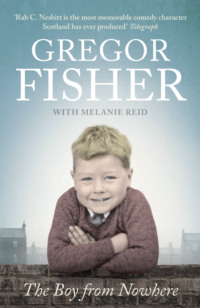
Полная версия
The World I Fell Out Of
About six weeks after my accident, the staff took us out of the unit in a minibus to the local shopping mall to play ten-pin bowling. It was my first time out in the world in a wheelchair and I found it brutal – physically alarming (would my head stay on going round corners?) and emotionally souring. Glowering from the minibus windows at the drivers zooming past in their busy, able-bodied lives, I cursed the bad luck that had put me here, in crippledom, in what felt like the Sunshine Variety bus, rather than where they were.
At the giant shopping complex, I struggled with everything – the fresh air, the searing daylight, the tiny gradient up to the entrance, the sight of people, people, people, effortlessly doing all the things I used to do, getting out of cars, rushing into shops, window shopping. The sense of dislocation and loss was profound and I felt so small that I wished I could disappear, swallowed up in my own tears of self-pity. Weeping defiantly, I inched my way along the fronts of shops full of clothes designed to look good when you’re standing up, cursing them as well. As I was by far the weakest wheelchair pusher there – and it’s a tough school, spinal physio; you have to push yourself – I was trailing a long way behind the others by the time I got to the bowling alley at the end of the mall. Black humour is possibly the very last lifebuoy left in the sea at times like that; it certainly came to my rescue that afternoon.
The spinal outing had coincided with that of a group of special needs adults, who were clustered around the arcade games at the entrance to the bowling alley. Severe Down’s syndrome, people with growth deficit, damaged bodies and all degrees of learning difficulty, enthralled by the flashing lights and the buttons to press. Then they saw me coming. I guess I was some sight: a kind of Ninja Turtle moving very, very slowly on wheels, encased in black and white plastic from chin to groin, flailing elbows, funny gloves, red eyes, a yellow bag of urine and its valve trailing mysteriously from under my trouser leg. They all turned, entranced by the vision. At the entrance, just where the arcade machines were, the shiny floor of the mall turned to carpet and upon it I stuck, becalmed, and my legs went into spasm.
Oooooh, said the army of little people, and they forsook the flashing lights and motorbike simulators to gather around me. They inspected me at close range with grave, uninhibited curiosity, fascinated by the alien on wheels flailing weakly in front of them. I smiled and nodded at them, foolishly trying to protect my dignity. They didn’t care. They weren’t being judgemental. I realised that they had instinctively identified someone who was as low down the pecking order as they were. I was one of them, but I looked a bit funnier. I might even be lower down the order than them. Indeed, most of these solemn-faced souls were taller than me, and much more mobile. I felt as if I had been cast in one of Alan Bleasdale’s black comedy dramas. They were still staring, gently but persistently, when a nurse came to my rescue and pushed me onto the carpet towards the bowling alley, and balls I could neither lift nor bowl.
During those early days in rehabilitation, I got to put a face to Snafu, whose angry, distressed voice had echoed round my nights in the high dependency ward. Everyone adored Snafu – male and female patients, nurses, physiotherapists, his mum, his sisters, his Army mates, his five thousand ex-girlfriends: he was a tough, outrageous, larger-than-life character, as wild as a semi-domesticated polecat, as sharp as any stand-up comedian, as mature as he was vulnerable. Then nineteen, he had been shot in Helmand, Afghanistan, when a sniper’s bullet sneaked into the sleeve hole of his body armour, hit his shoulder blade and ricocheted through his spine at the top of his chest. He reckoned the Afghan was a rubbish shot.
‘If he was any good I’d be dead, wouldn’t I?’
As he lay on the ground, fully conscious, he remembers bantering with his fellow soldiers. He thought he was dying, but decided he might as well go with a smile on his face. His mates told him what soldiers always tell their dying comrades – that he’d be all right; that he’d be in the pub in no time. He was helicoptered to Camp Bastion, thence to Birmingham, and soon to the spinal injuries unit in Glasgow, to be nearer his family. The six-foot-four, fifteen-stone soldier morphed into a skinny, laconic, blue-eyed tetraplegic playboy, soon well enough to dance around the gym on the back wheels of his wheelchair like a trick cyclist, chatting up all the girls, amusing everyone with his antics. Either that, or he indulged in a soldier’s favourite game of mooching, fag in hand, at the door, trading profane insults with anyone brave enough to take him on.
During the Pope’s visit to Glasgow in 2010, Snafu appeared at one end of the ward, as if in a vision, a mitre fashioned from a pillowcase stuffed with cardboard upon his head, his body draped in a white blanket, a giant crucifix round his neck. He carried an aluminium brush handle as a staff and glided regally up the ward in his chair handing out fragments of sliced white bread to the occupant of every bed. In Glasgow, a city riven by religious divide, the comedy was especially edgy, of course, because he was a Protestant; a Rangers football team supporter.
‘Bless you my child,’ he said at every bedside.
And to the women and the female nurses, his eyes dancing sardonically: ‘Kiss my ring.’
Several years have passed, but I can still remember the sustained gale of laughter following him up the corridor that day. People laughed and then kept on laughing and then laughed some more. You simply don’t hear that in hospital. He provoked a similar outbreak of mirth in the gym when, bored and restless as he often was, he wheeled around asking all the women present how much they would charge to lap-dance for him.
The physios gathered their professional dignity and tried not to join in.
‘Get lost, Snafu.’
‘Go away! Aren’t you supposed to be on the triceps press?’
He was utterly persistent. ‘No, you have to tell me. How much?’
Eventually, casting their eyes around to make sure no NHS suits with clipboards were lurking, the physios played his game.
‘Four million,’ said one.
‘At least. Because my career would be finished if I was found out.’
‘Six million.’
‘I wouldn’t do it.’ A humourless junior physiotherapist on rotation in spinal.
His eyes lighted wickedly on me, purple-faced, toppled helplessly over my own knees. ‘Hey Mel, what would you charge?’
I was flattered to be asked. He tolerated me, just about, as a mate, although his banter was brutal – I was as old as his granny, plus he’d decided I was officer class. I’d been a horse rider, after all, and he’d found out my house had an orchard – so in the gym he loudly dubbed me a caviar-eating snob. In private, when he found me in tears, he was kindness itself. He was a year younger than my own son.
‘Half a million,’ I said. ‘Because my freak value doesn’t outweigh the fact I’m too old.’
‘Nah,’ he agreed.
Snafu got particularly bored at weekends, when there was no gym. One Sunday evening, the place packed with visitors, his terrible screams echoed down the ward: ‘Aaaaargh!! Nurse!!!! Come quick!!!! I can’t feel my legs!!!’ For amusement, he regularly soaked the auxiliaries when they helped him shower, or when the fire alarm went off, as it did often, he sped up the ward screaming, ‘Fire! Everyone out! This one’s for real.’ It was Snafu who yelled triumphantly across the gym, ‘Susaaaaan! Ah’ve pished masel’!’ when his catheter tube became disconnected from his leg bag; who invented wheelbarrow races for the paralysed; who decided to practise commando crawl across the gym, dragging his legs behind him, and of course wriggled straight out of his tracksuit bottoms, exposing himself to the world, and leaving the physiotherapists initially too helpless with laughter to cover him up; and it was Snafu who, despite his impaired hands, beat everyone in the target-shooting competition one Wednesday afternoon, part of our weekly games session. As a flourish, to demonstrate he was in the company of amateurs, he also shot the clock on the gym wall: the holes remain in the glass to this day. He had wanted to be a soldier since he was four and before he was paralysed he’d been in line for specialist sniper training and promotion. A man-child: incorrigible, charismatic, vulgar, cynical, careless, self-destructive, heroic, vulnerable, shrewd. Of all the people I encountered in the tiny, little-understood world of spinal injury, he was the one that made me the most sad.
Approaching bedtime on the rehab ward was the worst. The conveyor-belt sequence kicked in again, in reverse, and we sat by our beds, queueing for the team of two nurses to come and hoist us out of our chairs onto the sheets and attach our overnight urine bags. Then we waited for the final drugs trolley. Long-term incarceration in hospital teaches you tolerance, patience and the knowledge that we are all very, very human. Even now, years later, when I close my eyes I can hear the banter of Rosebud in the distance and the squeak and rattle of the night-time trolley she is pushing. And around me I can sense some of my fellow patients starting to flutter and jangle. Respectable middle-aged women, with husbands and flowerbeds and Vauxhall Astras, but now hungry for whatever opiate or benzodiazepine they needed to soothe the mental anguish of their state, their personal paradise lost. They hungered, bodies paralysed but writhing inside for medication, just as mine had writhed in the high-dependency ward. When was the trolley coming? One woman would press her buzzer anxiously and then others would follow. The drone of multiple alarms would sound down the long ward.
‘What kept you?’ Mrs Bennett would cry.
Rosebud, ever insouciant, was having none of it.
‘What do you think this is? BUPA?’ she cried. ‘I tell you, you’re lucky it isn’t. I’ve worked in private hospitals and they bill you for every single pill you take. Even a paracetamol. Youse are lucky youse are here and not there.’
Apart from when the staff came to turn us onto the other hip on a four-hourly rota, we were then undisturbed until the morning. That was the theory. Nights change when you are in hospital. In fact, as I was to learn, nights change forever when you are paralysed. Any joy went. Your favourite sleeping positions ceased to exist, partly because you could not feel them and partly because you could not achieve them on your own. You adopted the protocol position you were put into – on one hip or the other, pillow wedged into your back, another under the upper knee, more pillows stuffed into the bottom of the bed blocking your feet from going into a flexor spasm downwards. Thus comfort was outsourced: someone else arranged your limbs and your torso in a way which was safe for your skin and for your tubes to survive unblocked. Your frozen hands were put into customised splints, the fingers strapped flat against the formed plastic so they could not contract, and all autonomy was removed. You could no longer scratch your nose, let alone pick it. The private geometry of your night, your ability to cuddle into shapes practised from childhood, was gone for ever: a very personal autonomy to lose. Meanwhile, the hour hands stuck, as if glued, to the face of the clock – T.S. Eliot’s ‘Only through time time is conquered.’ Peace was as lost as paradise. The nurses’ station on night shift was notoriously noisy; there were a handful of the staff who seemed unable, or disinclined, to lower their voices as they sat chatting. When buzzers rang, they would push back their chairs, the metal legs screeching on the floor. Weirdly, my paralysed bladder used to spasm at that noise: a peculiar sensation – somewhere deep inside an insensate body, in a dormant vital organ which contained a foreign body, a catheter, there was a horrid jump of indignation at the discordant pitch. Imagine. I could hear with my bladder! Was it transmitted via my ears, down some remaining nerve pathways, or was it a vibration in the air that affected my bladder alone, its catheter acting as a misplaced aerial?
In between interruptions, we learnt to endure the passive tyranny of those long hours, where no limbs stirred, no sheets rustled. These were not normal wards. You have no idea how eerily morgue-like paralysed patients are in bed when they cannot move. Nurses are notoriously superstitious; there are rich stories of ghostly scares on night-time wards with darkened corridors. Delphinium, one of the regular night shift, told me of the fright she had when a patient, paralysed from the neck down and normally as still as a corpse, sat bolt upright as she passed, the result of a sudden, unexpected spasm. Muscle spasms could happen, but rarely as extreme as that.
‘I was like, waaaaaaah. Nearly crapped myself,’ she said. ‘He didn’t even wake up.’
Night time. Even if our bodies were by necessity quiet, our minds were their own torture chambers, forever churning the random nature of the accidents, the screaming bad luck which had damned us to stillness. Why us? Why me? And often, if we did dream, our dreams tormented us by putting us back on our feet again. Dreams so vivid that when we woke, it was especially desolate to rediscover reality. One night I dreamt that Vitamin D tablets were a miracle cure for spinal injury, and because I already took them as supplements I was able to walk again. There I was up on my feet, walking unsteadily round the ward helping my fellow patients reach things from their bedside tables, and waiting for the doctors to arrive so I could tell them the good news. I woke up, convinced it wasn’t a dream, fighting a sickening lurch of hope and then disappointment before cold logic kicked in. I remember one night I even said to myself in my subconscious, now don’t be fooled, this is a dream, you can’t really walk again, and then I dreamt that to test it, I had woken up, and it was true – I could actually walk again. Double-dip dreaming. A plot within a plot. But of course everything remained within the parameters of the dream. Waking that morning for real was particularly cruel.
Always in the night there were the needy patients, the ones who became queasy or overcome with pain, or indeed were just desperate for human contact to break their desolation. We had call buzzers on wires; paraplegics had theirs on the bedside table, because they could reach. Tetraplegics with some arm function had them draped across their bedclothes, as in my case. Those who could move only their heads and shoulders had them by their cheek, so they could turn their head and press them. I hated using mine, but many people didn’t have the same hang-up. There were also the confused souls who couldn’t locate their buzzers, and they would just cry out, ‘Nurse … nurse …’ Of course the nurses couldn’t hear, but the rest of us in the room would be woken, and someone in a nearby bed would press their buzzer instead.
Doobie had a habit of rushing in, crying theatrically: ‘Who’s buzzing NOW?’ and striding crossly towards the patient with the flashing call button above their beds.
‘It’s Elsie,’ the buzzer-ringer would stammer, defensively. ‘She can’t press her buzzer.’
And we lay awake and listened to poor wee Elsie being administered to, because we had no choice. One night, when I was on a further course of antibiotics for a lung infection, I woke with an overwhelming need to vomit. I pressed my buzzer and heard for the first time the distinctive slap, slap of a footfall I would come to dread.
‘What is it?’ she said. Not kindly.
‘I’m sorry but I feel really sick,’ I gasped. I was panicking inside. This had never happened before. I didn’t even know if I could be sick.
She said nothing, but turned on her heel and disappeared. Soon she returned with a papier-mâché NHS sick bowl, the grey bowler hat of despair. Her body language was contemptuous. She thrust, almost threw, it at me, and walked away, leaving me to be sick alone. She didn’t say a word.
It was my first introduction to Nettles.
Конец ознакомительного фрагмента.
Текст предоставлен ООО «ЛитРес».
Прочитайте эту книгу целиком, купив полную легальную версию на ЛитРес.
Безопасно оплатить книгу можно банковской картой Visa, MasterCard, Maestro, со счета мобильного телефона, с платежного терминала, в салоне МТС или Связной, через PayPal, WebMoney, Яндекс.Деньги, QIWI Кошелек, бонусными картами или другим удобным Вам способом.



